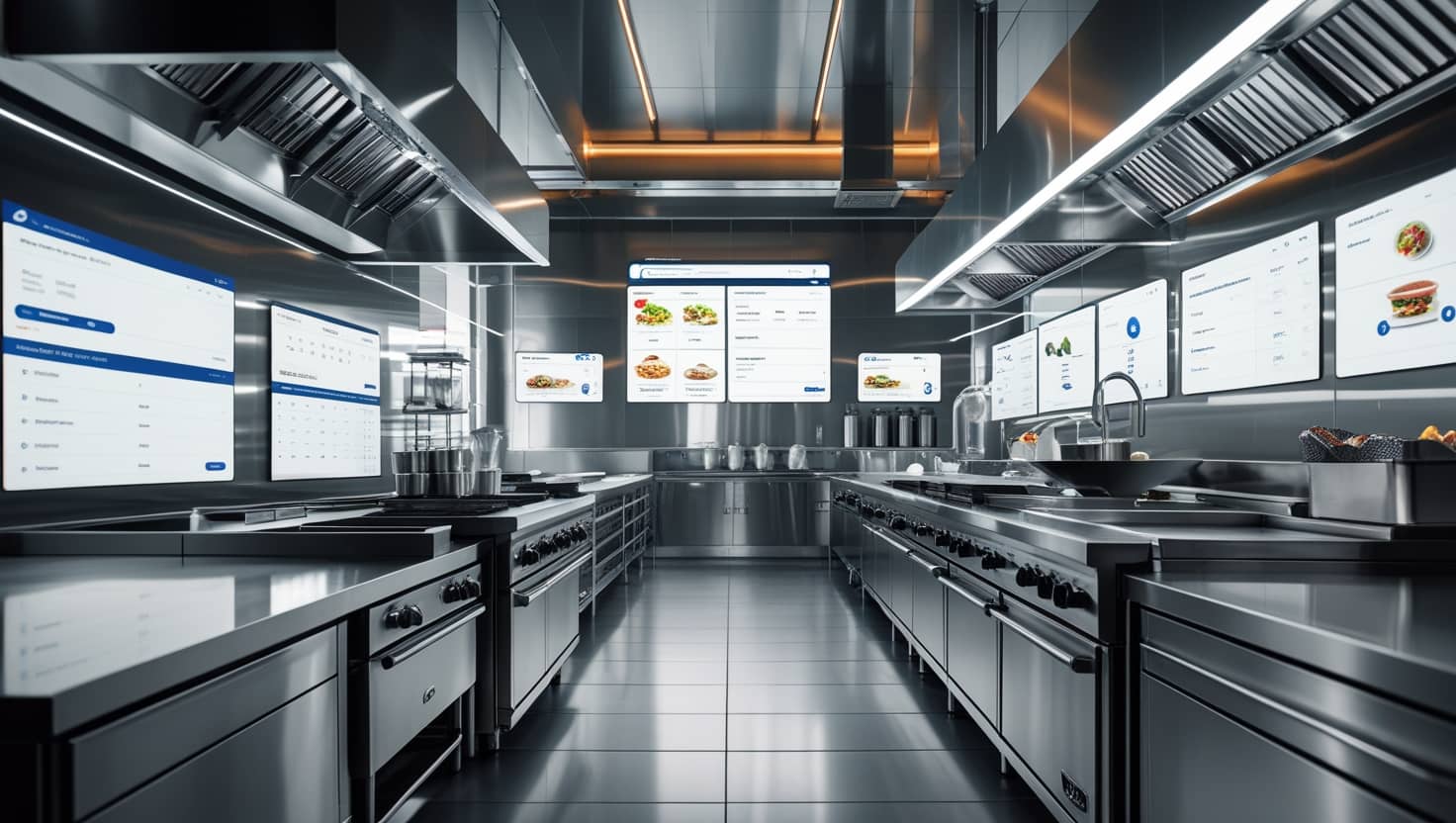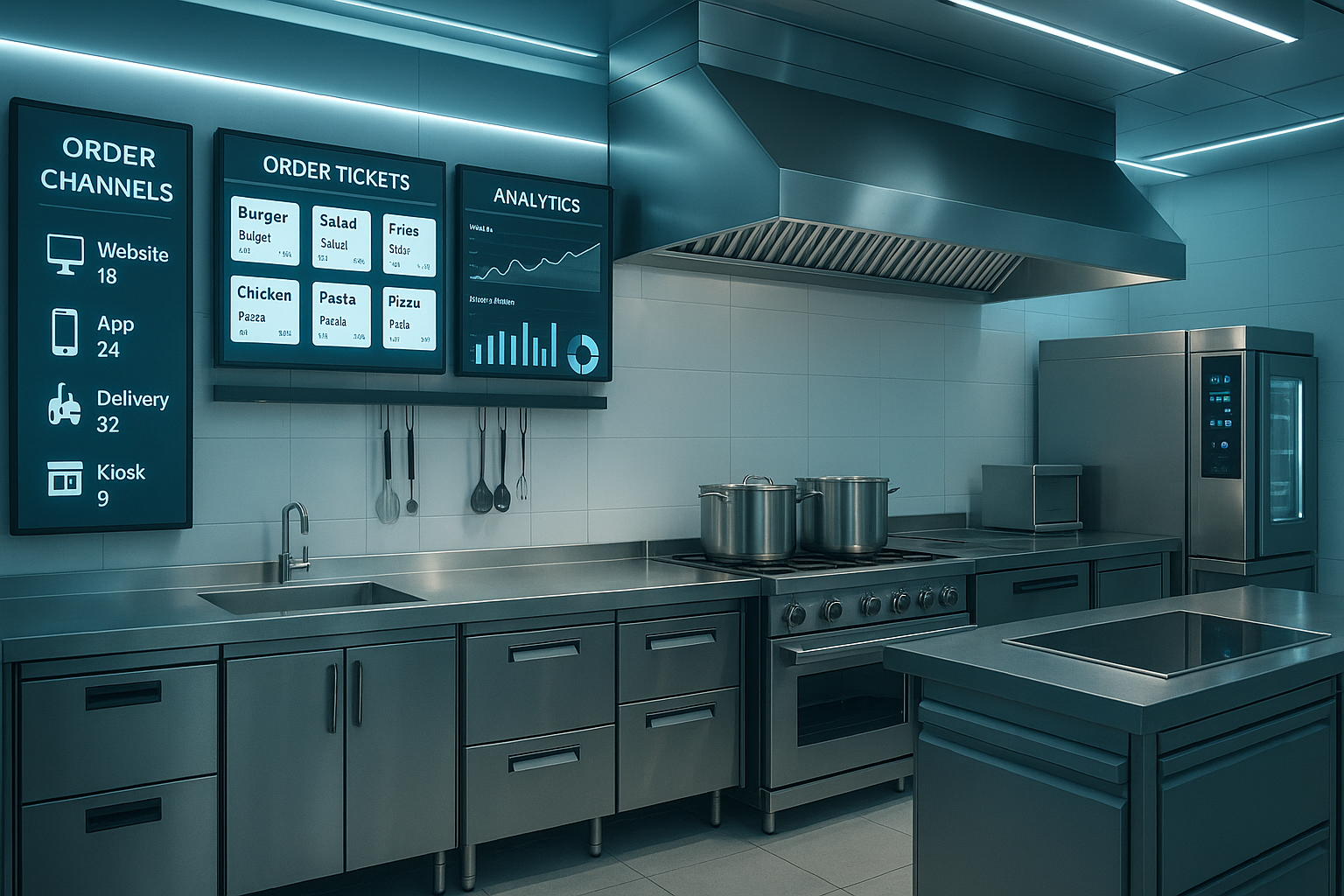Understanding Automation and Integration in Restaurants
Automation and integration are the cornerstones of modern restaurant management. By combining software tools into a single, cohesive platform, restaurants can streamline operations, significantly reduce human errors, and deliver exceptional customer experiences.
Channels of Incoming Orders in Restaurants
Restaurants today receive orders from various channels, including:
- In-store orders (Self-ordering kiosks and traditional counters)
- Online orders (Website and app)
- Third-party delivery aggregators (Uber Eats, Zomato, Talabat, Deliveroo)
- Messaging platforms (WhatsApp)
- Call-center orders
Automated Processes in Restaurants
Automating restaurant operations significantly enhances efficiency. Key automation areas include:
- Order acceptance and processing
- Inventory tracking and management
- Real-time status updates to customers
- Billing and payment processing
- Analytics and reporting
Detailed Overview of Order Channels and Enhanced Features
1. In-Store Ordering
Includes traditional counters and self-ordering kiosks, ensuring accurate and quick transactions.
Additional Features:
- Real-time integration with kitchen display systems (KDS)
- Interactive menu customization
- Instant customer loyalty integration
2. Online Ordering (Website and App)
Customers order directly through branded websites and mobile applications.
Additional Features:
- Automated upselling and recommendations
- Instant integration with inventory systems
- Real-time customer notifications via SMS or push notifications
3. Delivery Aggregators
Orders from third-party platforms like Uber Eats, Zomato, and others.
Additional Features:
- Centralized dashboard integration for all delivery channels
- Automatic menu synchronization across platforms
- Unified performance analytics
4. Messaging Platforms (WhatsApp)
Direct messaging for convenient order placement.
Additional Features:
- Automatic chatbot assistance for order placement and status inquiries
- Integrated payments directly through messaging apps
- Personalized customer interactions
5. Call-Center Ordering
Orders placed via phone calls, managed efficiently.
Additional Features:
- CRM integration for customer history retrieval
- Automated voice response systems (IVR)
- Real-time order tracking updates via SMS
Detailed Automation Processes and Further Opportunities
1. Automated Order Acceptance and Processing
Automatically capture, verify, and route orders directly to the kitchen.
Additional Automation:
- Dynamic order prioritization based on preparation times
- AI-driven prediction of peak ordering times to optimize staffing
2. Inventory Tracking and Management
Real-time tracking of ingredients to prevent stockouts and reduce wastage.
Additional Automation:
- Predictive reordering alerts based on historical consumption patterns
- Automatic supplier notifications and orders
3. Real-Time Status Updates
Keeping customers informed about their orders at every step.
Additional Automation:
- Automatic updates via multiple channels (SMS, email, push notifications)
- GPS-based delivery tracking integration
4. Billing and Payment Automation
Automated billing ensures accuracy and enhances customer convenience.
Additional Automation:
- Integrated digital payment gateways
- Automatic invoicing and digital receipt dispatch
5. Advanced Analytics and Reporting
Real-time data insights for strategic decision-making.
Additional Automation:
- Automated performance reports generation
- AI-based customer segmentation and targeted marketing insights
Conclusion: Unlock Efficiency with Smart Restaurant Automation
An integrated smart automation platform drastically reduces operational errors, enhances efficiency, and elevates the customer experience. By implementing these advanced solutions, restaurants can ensure smooth operations, increased profitability, and sustained growth.
Transform your restaurant today—embrace automation with iPOS!






